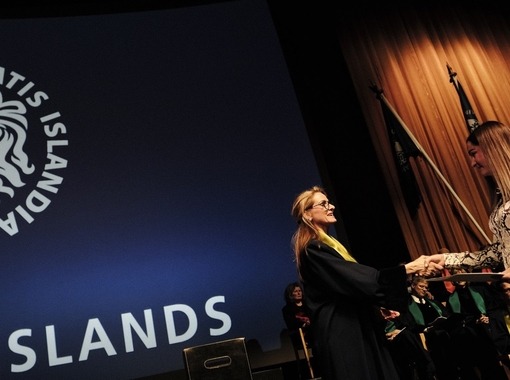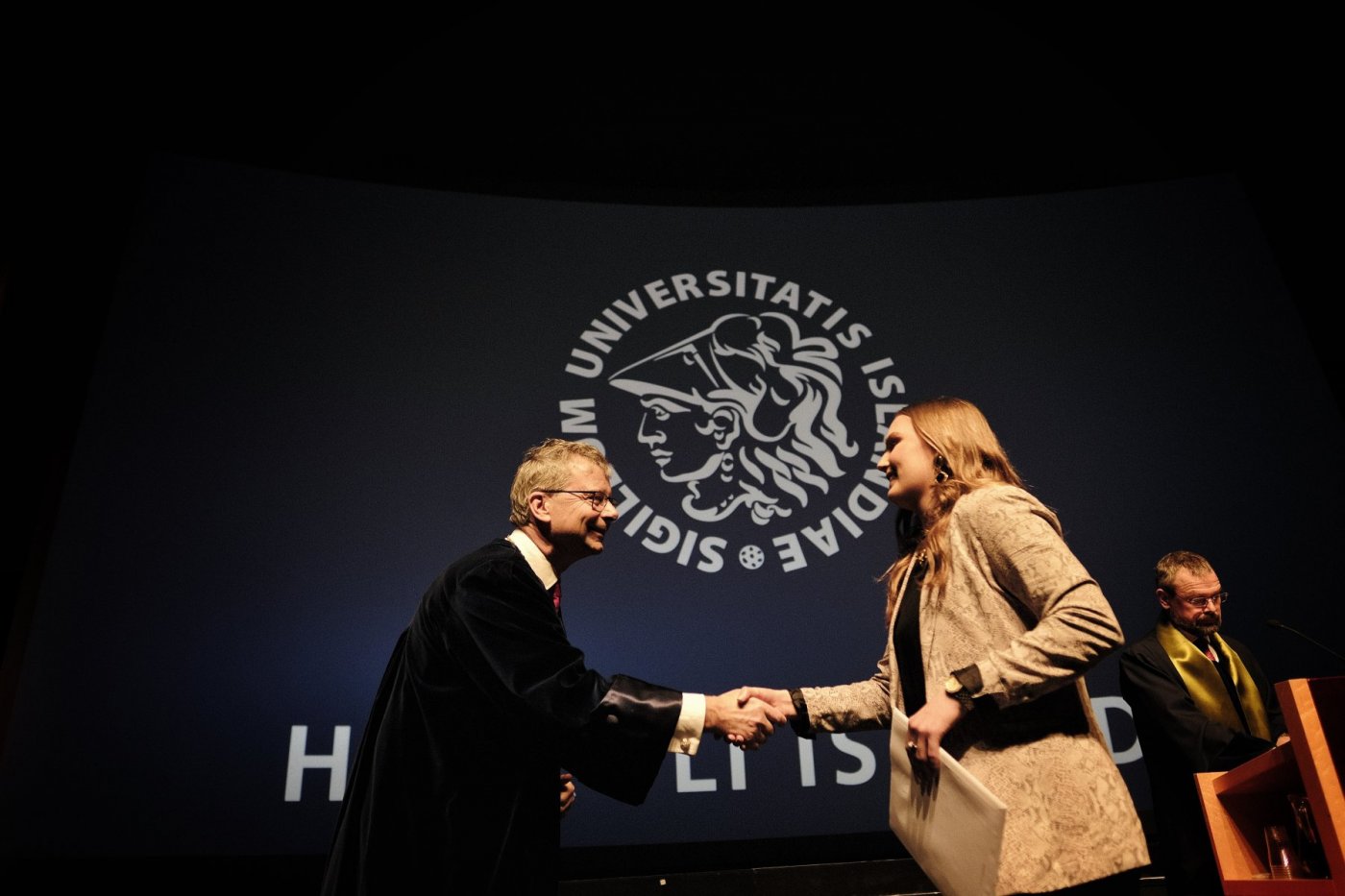The rector of the University of Iceland spoke about progress and optimism when 444 candidates received their diplomas from both undergraduate and graduate studies earlier today.
"Progress does not only manifest in increased life expectancy, better education, and increased democracy; but also in greatly improved access to electricity, increased legal protection, better security during natural disasters, and more equality. Equal rights to an education has proven to be one of the biggest breakthroughs for mankind, bringing improvements in almost all aspects of life," said Jón Atli, asking the question whether young people had reasons to be optimistic for the future, whilst research shows that many believe that the world's situation is constantly deteriorating.
"If we scrutinize our quality of life from a historical perspective very few of us would like to trade places with our ancestors. Two hundred years ago 94 percent of humanity lived in extreme poverty opposed to 10% in our time. Only one percent lived in democratic states in 1820, whereas 60 percent do so today. Over two hundred years ago 83 percent of humanity did not get any basic education, but now the percentages have turned around and 86 percent of mankind have access to primary education. Two hundred years ago 43 percent of all children died before they reached the age of five whereas infant mortality today is four percent worldwide.
Jón Atli is referring to statistics from recent OCED reports and the research of Steven Arthur Pinker, Professor at Harvard University, and Hans Rosling, a former professor at Karolinska Institutet in Sweden.
Education and research bring us prosperity
Jón Atli wondered in his talk why people have such a bleak image of the world when the facts tell a different story. "One of the reasons is without a doubt valid concerns about the man made climate change that could jeopardise civilization and life on the planet."
Jón Atli said that the drive behind reforms and new knowledge lie in systematic research on nature and society based on the idea to always follow the truth. "This is the precondition of progress and the source of abundance in times to come." The increased level of education and research will give us the potential to win small and large victories in the fight against imminent dangers such as climate change, unequal distribution of wealth and power, soil erosion, and extinct species. It is urgent to constantly find new and creative ways to utilize knowledge. Challenges of the future require education, equality, critical thinking, freedom, and open-mindedness."
Jón Atli then drew attention to the situation in Iceland, where he said that it is obvious that higher education, research, innovation, and focused utilisation of knowledge had brought us great prosperity and security.
Rector finished his talk today be urging the candidates to be diligent in their work and to give back to society; and noted that the number of academics providing services to their country had never been larger.
Photo/Kristinn Ingvarsson

Important to adapt sustainable lifestyles
Rector finished his talk today be urging the candidates to be diligent in their work and to give back to society; and noted that the number of academics providing services to their country had never been larger.
"The stage is yours and the opportunities to do good deeds are innumerable," said Jón Atli and quoted the American poet Mary Oliver and the closing of one of her best-known poems, The Summer Day.
Tell me what else should I have done?
Doesn't everything die at last, and too soon?
Tell me, what is it you plan to do
with your one wild and precious life?
Jón Atli discussed the poem and asked how we can attend to our individuality, while simultaneously working towards a better society. "A deep and lasting contentment lies in doing good and being of service to others," said Rector. "It is imperative that the peoples of the world adapt sustainable lifestyles in unison with the Earth we inhabit. Yet we must not forget that even in this area significant progress has been made in the last decade or so. The destruction of the Ozone layer has for example been stemmed, green energy sources are increasingly being used in transport, and growing numbers of people have adapted lifestyles that promote health, conservation and sustainability.”
Today's graduates are from 24 faculties from all of the five University schools. 180 candidates graduate from the School of Social Sciences, 42 from the School of Health Sciences, 73 from the School of Humanities, 69 from the School of Education, and 80 from the School of Engineering and Natural Sciences.
Among the graduates are 313 women and 131 men.




